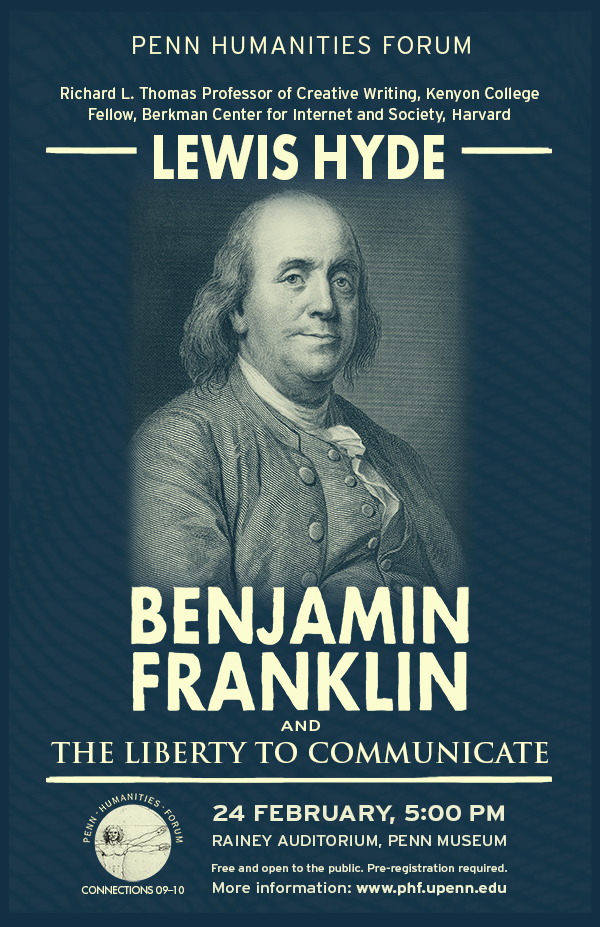Viewed in the light of intellectual property law, Benjamin Franklin appears to be our nation’s Founding Pirate. In his scientific pursuits and his relationship to the international circulation of knowledge, Franklin believed above all in the “liberty to communicate.” Reviewing the experiences and principles that shaped that view, Lewis Hyde explores Franklin’s belief that lively creative communities emerge when barriers to the exchange of ideas are low and connections, therefore, are easily forged.
Lewis Hyde is a poet, essayist, translator, and cultural critic with a particular interest in the public life of the imagination. His 1983 book, The Gift: Imagination and the Erotic Life of Property, illuminates and defends the non-commercial portion of artistic practice. Trickster Makes This World (1998) uses a group of ancient myths to argue for the kind of disruptive intelligence all cultures need if they are to remain lively, flexible, and open to change. Hyde is currently at work on a book about our “cultural commons,” that vast store of ideas, inventions, and works of art that we have inherited from the past and continue to produce.
Former director of undergraduate creative writing at Harvard University, Hyde teaches during the fall semesters at Kenyon College, where he is the Richard L. Thomas Professor of Creative Writing. During the rest of the year he lives in Cambridge, Massachusetts, where he is a Fellow at Harvard’s Berkman Center for Internet and Society.
Hyde received a BA in sociology from the University of Minnesota and an MA in comparative literature from the University of Iowa. His many awards include a Guggenheim Fellowship, Lannan Literary Fellowship, MacArthur "Genius Award" Fellowship, American Council of Learned Societies Fellowship, three Pushcart Prizes for Best of the Small Presses, and three National Endowment for the Arts Creative Writing Fellowships for Nonfiction.
Richard L. Thomas Professor of Creative Writing, Kenyon College
Fellow, Berkman Center for Internet and Society, Harvard University



